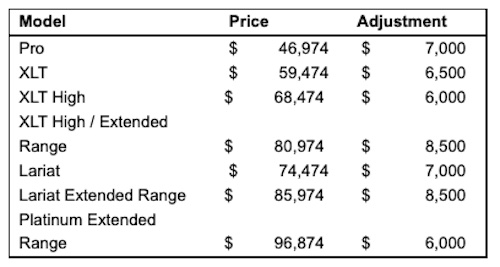Alabama schools are not required to teach sex education, so it’s mostly up to schools to decide whether to teach those lessons – and how in-depth they should be.
Over the weekend, many national groups – such as the National Education Association and Students for Life – issued statements about the Supreme Court decision overturning Roe v. Wade. Some also noted that, while teens are a small percentage of people who get abortions, educators and students in states like Alabama, where abortion is now mostly banned, will face some ripple effects – particularly when it comes to sex ed class.
Alabama social studies classes aren’t required to specifically mention Roe v. Wade, the landmark 1973 decision that nationally legalized abortion. A handful of states discuss abortion as a family planning or healthcare option, while others ban discussion of abortion; others, including Alabama, don’t appear to mention abortion at all, according to a 2020 report.
Since 1987, Alabama has required AIDS education in health classes, starting in the fifth grade. Further instruction about reproductive health, child sexual abuse prevention and the risks of sexual activity is required in middle and high school, but local districts can come up with their own sex ed policies as long as they meet those basic requirements.
“It’s all left up to local control, so it’s very patchwork across the state,” said Christina Clark Okarmus, the executive director of the Alabama Campaign for Adolescent Sexual Health. “And unfortunately, because it’s patchwork, and because it’s not mandated, we don’t actually have a clear picture of who’s teaching what in different schools.”
One thing, though, isn’t so murky: Most Alabama schools that do teach sex education are telling students that the best way to prevent pregnancy and STIs is to not have sex at all.
“When conversations are had, it’s about abstinence,” said Marilyn Lewis of the state’s prevention and support services department, which directs school safety, student health and anti-bullying efforts in Alabama schools. “However, some of the standards that have been incorporated into our courses of study, mainly health and science, it’s going to be on the anatomy of two students, male and female.”
Read more on Roe v. Wade in Alabama here.
Read more Ed Lab: Alabama examining sex education, survey questions about LGBTQ identity after new law.
A 1975 state code states that any sex education materials should emphasize that abstinence from sexual activity is the only completely effective protection against pregnancy, STDs and AIDS, and that abstinence outside of marriage is the “expected social standard” for school-age children.
According to state health standards, eighth graders are expected to create a plan for eliminating “unhealthy behaviors,” including sexual contact. Those standards also note that all students should “analyze the benefits of practicing sexual abstinence,” but do not mention birth control, condoms or any other form of pregnancy or STD prevention.
Science standards also require students to learn about asexual and sexual reproduction in animals, plants and humans in seventh grade. Third graders are also required to learn about birth, growth, reproduction and death among various organisms.
Impact of Alabama’s sex ed law
The state’s focus on abstinence, as well as other aspects of Alabama’s sex ed law, have been scrutinized by experts and advocates in recent years.
In 2020, Human Rights Watch issued a scathing report on the state of sex education in Alabama, and identifying a particular risk to LGBTQ students, who, until recently, were also required to be taught that homosexuality was a criminal act.
In 2021, Gov. Kay Ivey signed a bill that removed language in sex ed materials that referred to homosexuality as a criminal act. State law still emphasizes abstinence, but now aims to limit “unintentional pregnancy” instead of referring to “unwanted pregnancy.”
Alabama still has no standard regarding medically accurate sex education instruction. However, Alabama does require inclusion of the latest medical information when providing instruction on contraceptives.
But Clark Okarmus said that while schools are supposed to include information about contraception, that’s not exactly what happens in the classroom. Many schools, she said, tend to only emphasize abstinence and leave out information about alternative contraceptive methods.
According to a 2018 CDC School Health Profile, less than half of Alabama middle schools taught the health consequences of HIV, STDs and pregnancy, or how to access reliable health information related to HIV, STDs and pregnancy. Even fewer middle schools, and about half of high schools, taught students how to use a condom correctly.
Some agencies are seeking to fill those information gaps, Clark Okarmus said. Her organization provides some training and resources that schools can use. Additionally, county health departments and AIDS outreach and service organizations tend to provide various educational materials around pregnancy and STI prevention.
“But by and large, [schools are] not getting the training they need, and it’s not being delivered into the classrooms,” Clark Okarmus said.
Rebecca Griesbach and Savannah Tryens-Fernandes are members of The Alabama Education Lab team at AL.com. They are supported through a partnership with Report for America. Learn more here and contribute to support the team here.
Discovered on: 2022-06-28 21:21:42
Source: What Alabama schools can teach about abortion, sex education after Roe



